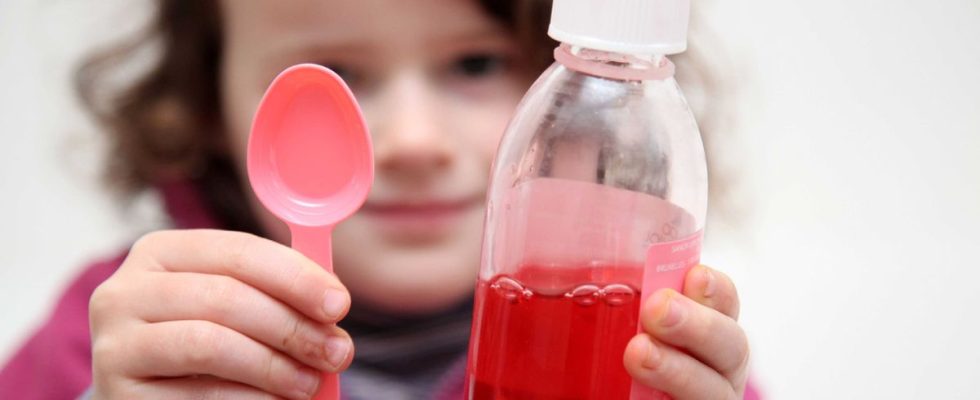that’s it, autumn is here: it’s cold, it’s raining, and around us, everyone is sneezing and coughing, and not necessarily into their elbows! Colds and other fall viruses lie in wait. And they may have already caught up with you. Do you have a runny nose, an itchy throat and are you starting to cough? Like many, you will probably opt for self-medication. A very French reflex, however, as the National Medicines Agency (ANSM) reminds us, over-the-counter cold medications in pharmacies constitute a potential health hazard: they can cause myocardial infarctions and strokes. cerebral (stroke), even at low doses and over a short treatment period, according to Christelle Ratignier-Carbonneil, director of the ANSM.
And you should also be wary of certain over-the-counter cough syrups. Some would be ineffective at best, and others would present undesirable effects tipping the benefit-risk balance to the wrong side. And it’s perhaps the syrup bottles sitting in your medicine cabinets at home that are potentially the most dangerous.
Syrups often ineffective, even dangerous
But when you get sick and cough to the point of sore ribs and sore abs, the temptation to resort to cough syrup to calm the cough and soothe the burning throat is greater than ever. Whether you have a dry cough or a wet cough, there are dozens of references for each ailment, including many available over the counter.
Around “70% of cough syrups are useless, but all of them can cause digestive disorders and allergic reactions,” warns Professor Jean-Paul Giroud, author of the work. Self-medication, The expert guide (ed. La Martinière), professor of clinical pharmacology and member of the Academy of Medicine, who conducts evaluations on the effectiveness and tolerance of drugs available on the market. For Professor Giroud, “self-medication is useful for treating a benign disorder in healthy adults provided they use an effective and well-tolerated medication.”
However, it is “to be avoided in infants, pregnant or breastfeeding women as well as in elderly people taking multiple medications,” insists the medication specialist. And while to date, several regions including Ile-de-France, Martinique, Guadeloupe and Brittany are already in the epidemic phase of bronchiolitis, the High Authority for Health (HAS) indicates that “antitussive and bronchial thinning syrups are contraindicated” in the treatment of acute bronchiolitis in infants. They are even “dangerous and increase the risk of hospitalization”, adds the Ministry of Health.
Watch out for old bottles in your cupboards
And if the big autumn cough has just caught up with you and you plan to treat it by taking a look in your medicine cabinet at home: watch out for the bottles of cough syrup that have been stored for a little too long in your cupboards, they are potentially dangerous for your health. If your bottles are more than a year old, even if they have not yet reached their expiration date and have never been opened, it is imperative to look at their composition carefully before taking it. a spoon. Because if they contain pholcodine, you should definitely not try to treat your cough with it.
According to a recent study, “taking a medicine based on pholcodine, used for cough, exposes you to a significant risk of developing a serious allergy to curares, indicated during general anesthesia, even if the anesthesia takes place several weeks after taking the drug alerted the ANSM in September 2022. Given the non-essential nature of these syrups and the existence of therapeutic alternatives, we consider that their benefit-risk ratio is unfavorable. Enough to push the health agency to immediately suspend “all marketing authorizations (AMM) for cough syrups based on pholcodine in France”. A decision which gave rise to the “recall of all batches of these syrups present in pharmacies, health establishments and wholesale distributors”.
A withdrawal supported on a European scale. “As of April 5, 2023, the marketing authorizations for medicines containing pholcodine (syrups) are withdrawn in France,” continues the ANSM. This measure follows the decision of the European Commission to withdraw the marketing authorizations for these medicines, in accordance with the opinion given by the European Medicines Agency. In practice, in France all the syrups concerned were subject to a batch recall from September 8, 2022. It is therefore no longer possible to obtain pholcodine since this date. So, if you have a cough and are in possession of pholcodine-based syrup, the wisest thing is to take it to your pharmacist and make a herbal tea made from thyme, honey and lemon.

